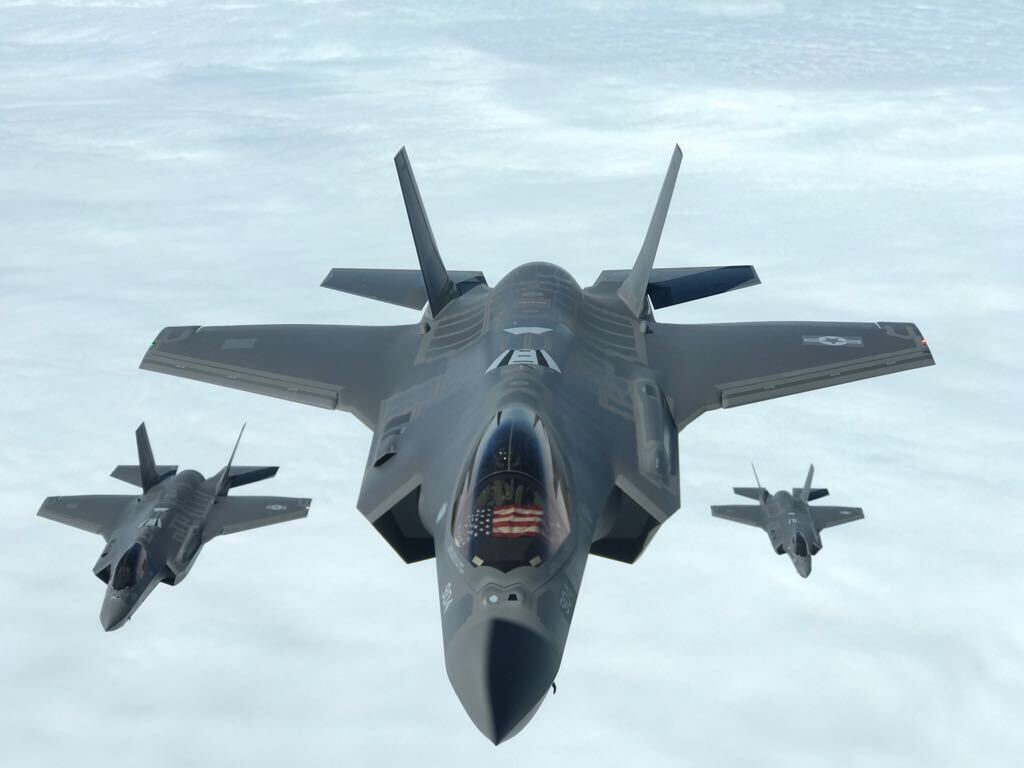Two pieces of good news came out of Washington over the weekend: U.S. Secretary of Defense Mark Esper and Defense Minister Benny Gantz agreed to a compensation package to Israel in return for it dropping an objection to the sale of F-35 fighter jets to the United Arab Emirates, and U.S. President Donald Trump announced the normalization agreement between Jerusalem and Khartoum.
Both announcements are part of stage 2 of Trump's strategic plan for the Middle East, titled the "Abraham Accords Initiative."
7 View gallery
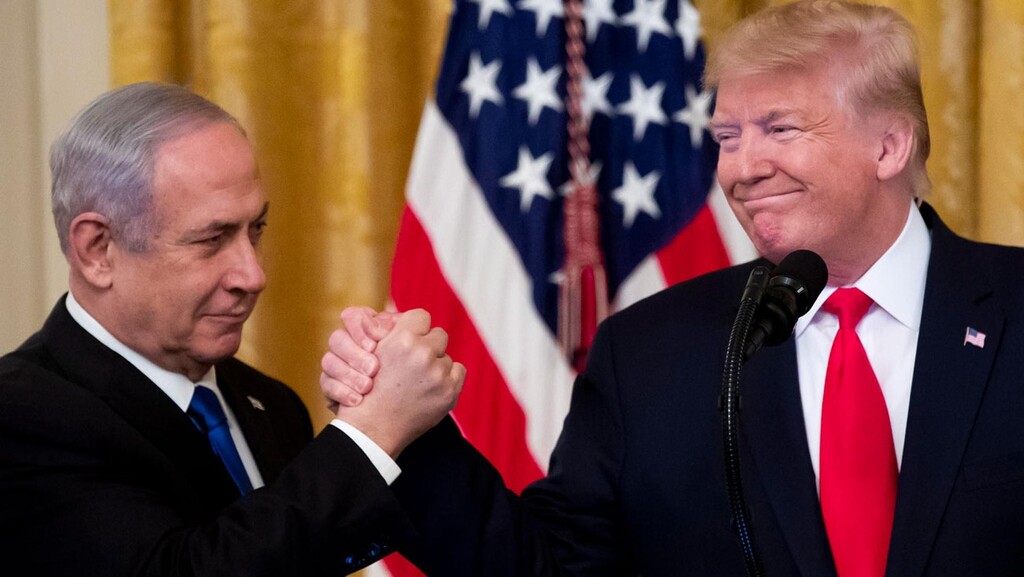

U.S. President Donald Trump and Prime Minister Benjamin Netanyahu at the White House in January, for the presentation of the American peace plan
(Photo: EPA)
While Israel is enjoying the fruits of this diplomatic drive, it is important to remember that these achievements are meant first and foremost to serve American status and strategic objectives in the region - and of course Trump's reelection campaign.
Israel's interests are not at the top of Washington's priorities.
From talks with officials involved in the Abraham Accords Initiative, the U.S. is seeking to achieve four objectives.
1. Revitalize the Middle East's pro-American and anti-Iranian camp and strengthen it by bringing together Israel and moderate Sunni Arab states.
This camp, with Israel clearly holding military supremacy within it, will be able to deal with any Iranian threats while the U.S. minimizes its physical presence in the region.
7 View gallery
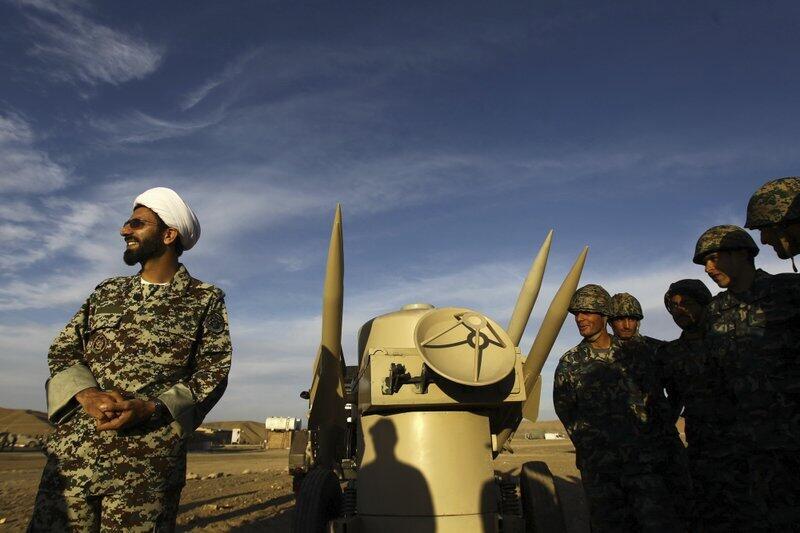

An Iranian clergyman stands next to missiles and army troops, during a maneuver, in an undisclosed location in Iran
(Photo: AP)
2. Increase the sales of American-made weapons to the region to create more jobs and financial opportunities back home.
3. Attempt to halt Chinese and Russian efforts to influence countries in the Middle East as part of a strategic conflict with the U.S.
Both Beijing and Moscow are trying to take military and financial advantage of America's withdrawal from the region.
7 View gallery
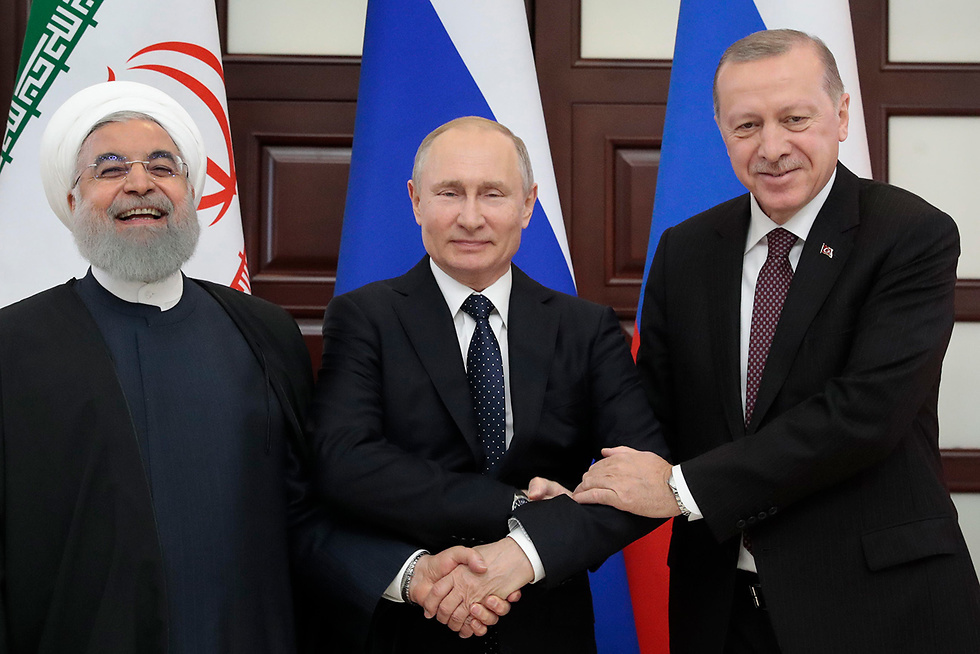

Iranian President Hassan Rouhani, Russian President Vladimir Putin and Turkish President Recep Tayyip Erdogan during a 2019 meeting in Sochi, Russia
(Photo: AP)
The Chinese government has tried to do this for years now with its Belt and Road Initiative - making use of its country's wealth to advance infrastructure investments abroad.
Russian President Vladimir Putin has tried to expand his country's influence and economic opportunities with its Syrian enclave in Latakia and by selling weapons and nuclear parts to countries in the region.
4. Bolster and fortify Israel's diplomatic and military position in the region and forcing the Palestinian leadership to realize it can no longer look to automatic Arab support.
This, Washington hopes, will force them to acknowledge the Trump administration's peace plan.
Strengthening Israel's position against the Palestinians could also increase Trump's support among Evangelicals and older Jewish voters.
Even the name Abraham Accords Initiative is meant as a wink to Trump's Evangelical voters one hand and Prime Minister Benjamin Netanyahu's voter base in Israel on the other.
How did this initiative come about?
The idea and basis of the Abraham Accords Initiative evolved from the work of senior White House aide and Trump's son-in-law Jared Kushner, on what the president branded the "deal of the century" peace plan to end the Israeli-Palestinian conflict.
During his diplomatic travels in the region with regards to the conflict, Kushner identified a huge potential and desire among the leaders of Saudi Arabia, the UAE and Bahrain to normalize relations with Israel.
He oversaw all the diplomatic behind-the-scenes work that lead to the agreements signed so far and those planned for the near future.
7 View gallery
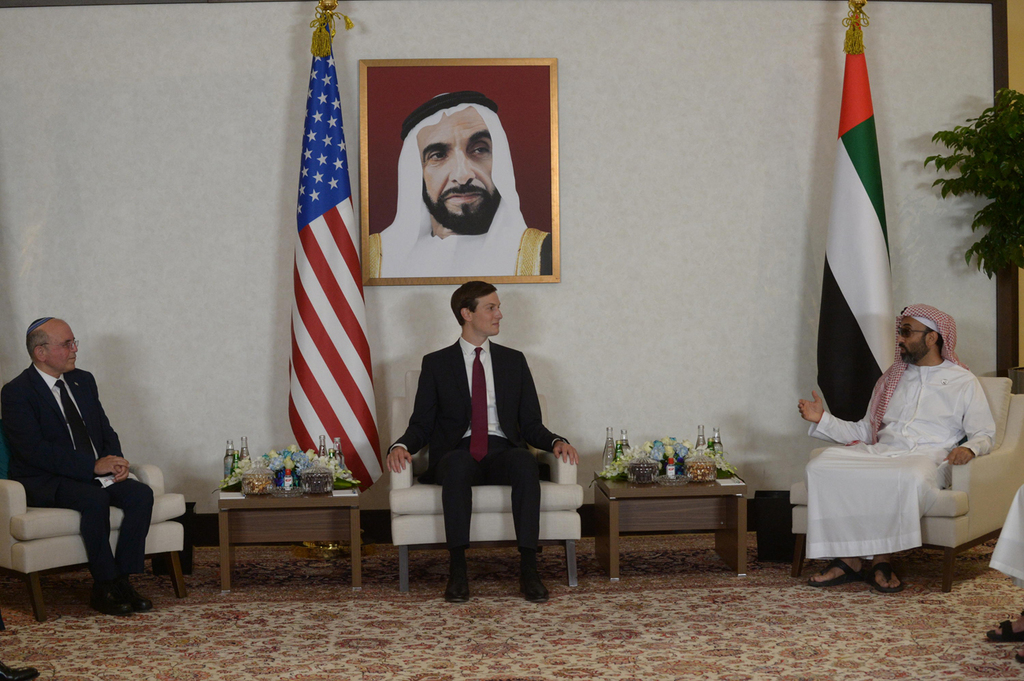

L-R: National Security Adviser Meir Ben-Shabbat, White House aide Jared Kushner and UAE national security adviser Sheikh Tahnoun bin Zayed Al Nahyan meeting in Abu Dhabi in August
(Photo: GPO)
While Netanyahu, Mossad Director Yossi Cohen and National Security Adviser Meir Ben-Shabbat advised him greatly and helped persuade the regional Arab leaders, most of the work has been done by Kushner, Assistant Secretary Bureau of Near Eastern Affairs David Schenker and U.S. Secretary of the Treasury Steven Mnuchin.
The first phase was accomplished when the UAE and Bahrain agreed to normalize diplomatic relations with Israel.
All that was left was to fulfill Trump and Kushner's promise to them and get Israel to agree to the sale of F-35 fighter jets to the UAE.
What exactly went on with the F-35s?
It is obvious that if Israel had continued, as it done in the past, to object to the sale of the advanced aircraft, U.S. Congress would have not approved the deal, which contradicts the "Guaranteeing Israel’s Qualitative Military Edge Act of 2020."
The purchase would have postponed or ruled out completely.
It is still unclear whether Netanyahu had given a prior pledge to not object to the sale until the U.S. would come up with a sufficient compensation package, or whether it was already given after the fact.
Either way, Netanyahu made this decision while hiding it from Gantz and Foreign Affairs Minister Gabi Ashkenazi and without consulting on the matter with senior IDF, Israeli defense or American legal officials.
As is suspected to have occurred with the controversial purchase of the German submarines, Netanyahu let himself ignore logic and official hierarchy in a manner more befitting a dictator than a democratically elected prime minister.
The declaration signed by Gantz in two quick trips to Washington, which pledges U.S. protection of Israel's military qualitative edge and a compensation package including financial aid, advanced defense systems and technology, seemed to be an attempt to fix this issue.
Another reported element in Washington's declaration is a commitment to not sell Arab countries any aircraft and weapon systems built using certain advanced parts developed by Israel.
This pledge also seems to be biding for the next U.S. administration.
What's the issue with the Sudan deal?
Unlike the "quid pro quo" agreement between Israel, the U.S. and the UAE, the treaty with Sudan stands to serve the Trump campaign far more than Jerusalem.
The U.S. president bolstered his political credit Friday among Jewish and Evangelical voters by announcing Sudan's willingness to normalize relations with Israel and its commitment to pay (with the money destined for the U.S.) compensation to families of American victims of terror attacks Sudan funded under its previous regime.
Israel will have to wait a while to see whether Sudan even agrees to officially sign on to a normalization of relations.
7 View gallery
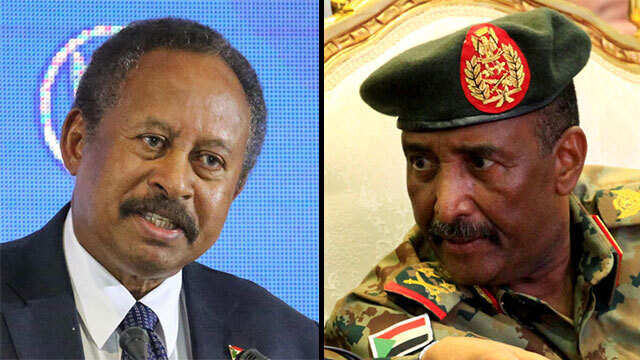

Sudanese Prime Minister Abdalla Hamdok and Chairman of the Transitional Military Council Abdel Fattah al-Burhan
(Photo: AFP, Reuters)
Sudan's current leaders have announced that such a move will have to be approved by parliament. The problem is, there is no parliament in Sudan and it is not clear when there will be one and if it will even be authorized to sign off on the agreement.
Although Sudan is a major Muslim nation in Africa, a member of the UN, the Arab League and various other international organizations, it has still barely recovered from the 2019 coup that ousted its former autocratic leader Omar al-Bashir.
It is a failing and unstable country, and therefore its influence on Israel's regional position and the world at large is minimal.
But what are the advantages?
The biggest advantage in Sudan's announcement that it is willing to normalize relations with Israel is the fact the African nation, which belongs to a group of moderate pro-Western Sunni Arab states, has moved away from the influence of Iran and its aspirations for hegemony.
On paper, this is a great boon for Israel, given that severing ties with Iran deprives its Revolutionary Guard Corps a route through which it can provide weapons and funding to Hamas and Islamic Jihad in Gaza.
Because of these funding efforts, Israel has reportedly attacked Iranian weapons shipments near or in Sudan that were attempting to go through Egypt into Gaza.
Now, even if the Iranians do try to keep using this route, they will meet with resistance by Sudanese authorities or even the Sudanese army itself.
In reality, Iranian weapons shipments to Gaza had almost or entirely ended in recent years thanks to Israeli intelligence efforts.
The two other advantages expected from the agreement are Sudanese cooperation in stopping any Iranian threats to Israel's south (maybe through the Houthis in Yemen) and a possible outline for the return of Sudanese asylum seekers in Israel to their homes.
Now we must wait for phase 3 of the Abraham Accords Initiative, given it will continue even if Trump and Kushner find themselves kicked out of the White House on November 3.


